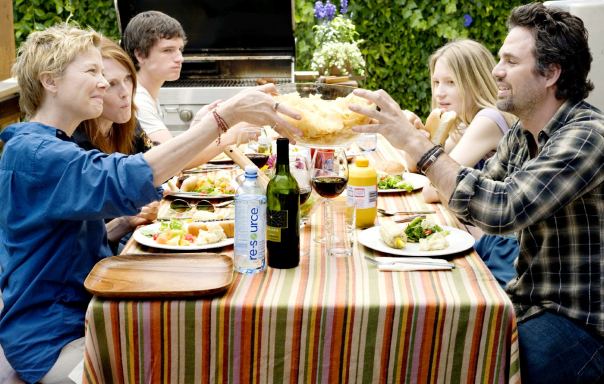What will you do when you get to the end of yourself? In Frozen, the main character goes a typical route. First, she withdraws in order to save everyone from having to deal with her and then enjoys the perverse freedom of being alone to be fully herself without any responsibilities.
Her sister goes another route. She teams up with bad people and good, but their combined strength saves the day.
What will you do when you get to the end of yourself? Do you typically go for autonomy? Or do you react by turning to the community? Most of us try both. Sadly, they both supply about equally dissatisfying results.
There is a third, spiritual way
We need what seems like a “third” way to us. We need spiritual resources, not just personal or communal resources. Think of the pursuit of spiritual resources as “paradigm shift.” If you think you have to solve it yourself, or if you think you have to solve it with all these people because, in either case, those options are all you’ve got, then think again.
In Jesus, you have God coming alongside to give you resources beyond what you have inside or at your fingertips. Beyond your ordinary awareness or even your spiritual awareness, is strength from the living God. When we have become a wound or we are being wounded and we can’t stop it, where do we go? Dig deeper? Connect closer? Those are not the worst ideas unless that’s all you think there is to do. Because there is more.
Jesus shows the way
In the famous scene of Jesus praying in the garden the night before his crucifixion, Jesus came back from praying alone to find his community. It says in Luke: “When he rose from prayer and went back to the disciples, he found them asleep, exhausted from sorrow. ‘Why are you sleeping?’ he asked them. ‘Get up and pray so that you will not fall into temptation.’”
Luke is generous to say that the disciples are “exhausted from sorrow.” It is also likely that they had not learned to turn to prayer when they are exhausted or exasperated or confronted with their typical temptations. They came to the end of themselves and conked out.
Many of us have a habit of falling asleep right when we need to pray. Many of us come to the end of ourselves and purposely put ourselves to sleep with some drug or media. Frozen has anesthetized millions, for instance. When Jesus is crucified the next day he demonstrates how he has accessed resources beyond his personal strength or the power of his community. When he receives the wounds of the world, he cries out, “Father forgive them.”
Prayer is our access point to life
What do you cry out? The other day when I was praying, I again realized I have a few places in my daily life that provide regular temptations. I have unhealed wounds that are easily injured, typical exasperation points, and things that make me want to take a long nap somehow. I have some things I often cry out, but I need to follow Jesus and access resources beyond myself rather than just sitting at the end of my meager capacity feeling alone and resenting my meager community. What are those places for you? A few of mine are:
- Leaders who are out for themselves and do not listen, do not serve, do not know.
- Cars parked in bike lanes.
- Parents abusing their children because they are at the end of themselves.
- Being falsely accused by customer service people.
- When the power of my convictions is eroded by the apathy of my colleagues.
Like Jesus, we are also dealing with the wounds of the world. We are exhausted and exasperated. I think Jesus is sometimes frustrated with us, too, because we prefer sleep to prayer.
But I also think Jesus looks on us fondly even when he is frustrated because he knows we are mostly dust in our own eyes. He is calling attention to that place deep within us that we can access by prayer. We have access to spiritual resources beyond ourselves and our communities. Our perverted instincts might tell us otherwise, so it is going to be a battle to get healed — some things will have to die. But in the midst of that battle, amazing capacity is gained and we give birth to the wonders of God with us.














 We could miss the life. I walked out of
We could miss the life. I walked out of 



